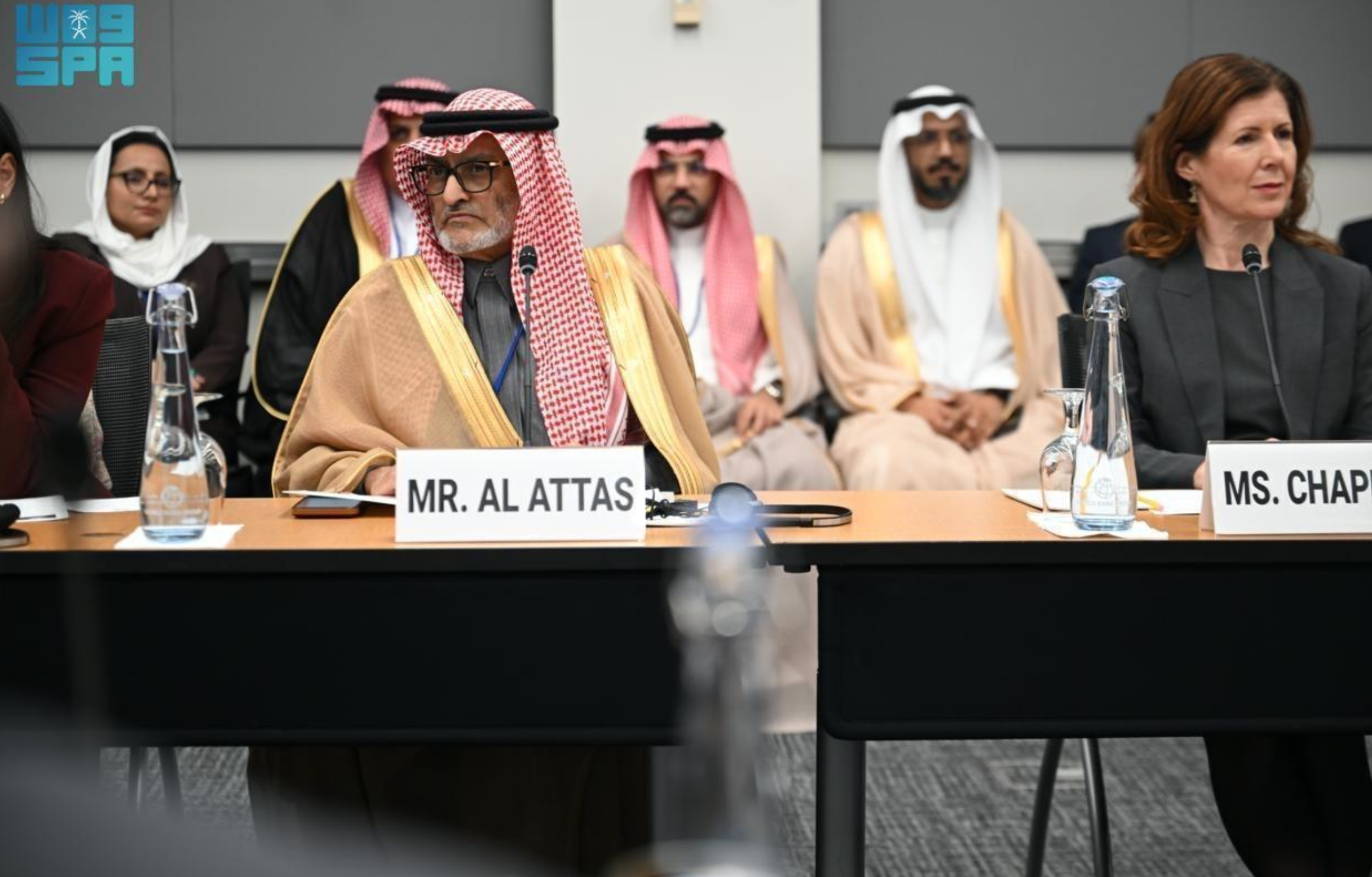
Saudi Arabia's Support for Yemen Is a Model for Achieving Stability, Development
A delegation from the Saudi Development and Reconstruction Program for Yemen (SDRPY), headed by SDRPY Assistant Supervisor-General Eng. Hassan Al-Attas participated in a roundtable discussion organized by the World Bank entitled "Enabling Jobs in Fragile and Conflict-Affected Environments: a Roundtable on Stimulating Private Investments."
The discussion took place on the sidelines of the annual meetings of the International Monetary Fund (IMF) and the World Bank in Washington. The event was attended by World Bank Managing Director of Operations Anna Bjerde; ministers from the United Kingdom, Belgium, Germany, Somalia, Guinea, and Ethiopia; Multilateral Investment Guarantee Agency (MIGA) Vice President of Operations Junaid Ahmad; a member of the World Bank Group; and decision-makers and representatives of international organizations.
The SDRPY assistant supervisor-general expressed his thanks and appreciation to the World Bank Group for organizing the roundtable, which brought together leaders and policymakers from several countries, along with leaders from the World Bank Group, in a discussion that reflects its global reach and importance.
Al-Attas emphasized that the Kingdom of Saudi Arabia has contributed to strengthening economic stability in the Republic of Yemen, as it has been the largest supporter of Yemen over the past decades, with development, economic, and humanitarian support exceeding $26 billion.
He explained that since 2018, Saudi Arabia has provided direct deposits and grants to the Central Bank and the Ministry of Finance, including a $2 billion deposit to cover basic food imports, and additional support estimated at more than $12 billion between 2012 and 2025. The financial support contributed to alleviating the burden on the Yemeni government's budget and limiting the depletion of the Central Bank's foreign currency reserves by providing oil derivative grants, stabilizing markets, improving liquidity, and enabling the private sector to operate.
Al-Attas reviewed SDRPY's development experiences and the lessons learned from its development interventions. SDRPY is based on three axes: supporting the government sector, investing in infrastructure and human capital, and stimulating the private sector. He added that the comprehensive framework contributed to strengthening institutions, reducing the depletion of foreign reserves, and enabling ministries to implement more efficient economic and financial policies.
The assistant supervisor-general pointed out that the SDRPY has provided more than 265 development projects and initiatives implemented in 16 Yemeni governorates, covering eight vital sectors, with direct monitoring and supervision from five of the program's executive offices, at a cost of $1.145 billion.
The SDRPY's delegation held a series of bilateral meetings, including one with Yemeni Minister of Planning and International Cooperation Dr. Waed Abdullah Badhib, and another with the executive director of Saudi Arabia's office at the World Bank Group, Suhail Al-Saeed.
The delegation also met Estonian Ministry of Finance advisor on international relations Märten Ross, and with senior advisor to the executive director on the board of directors at the World Bank Group, Dr. Jeehan Abdul Ghaffar.
The meetings aimed to enhance international cooperation and support joint efforts to achieve sustainable development in the Republic of Yemen.








